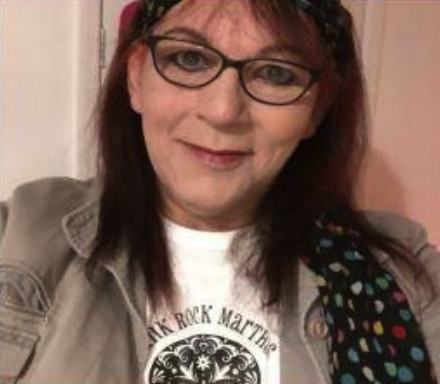LGBT+ Mental Health Issues Discussed in Includability Forum
What businesses can do to improve the mental health of LGBT+ employees

What businesses can do to improve the mental health of LGBT+ employees

Our members & ambassadors talk about what businesses can do to improve the mental health of LGBT+ employees
What businesses can do to improve the mental health of LGBT+ employees and the UK consultation on banning conversion therapy were among the prominent topics discussed at Includability’s live Mental Health in the Workplace webinar in recognition of Mental Health Awareness Week (MHAW).
What accepting environments in corporations look like and allyship training were also discussed in some detail.
The forum took place on 14 May and was the third webinar of Includability’s MHAW series. The event was hosted by Chris Allan, Director of Your D&I and featured a panel of views from across the LGBT+ community.
Who spoke at the Includability webinar?
The panel featured: Scarlet Marie Davey Morgan, Pride Network Lead at Allianz; Kristofer Phelps (he/him), Inclusion Lead at Veolia UK; Ellie Lowther (she/her), Founder of Essential Learning Curve; Matt Moore (he/him), Corporate Fundraising Manager at Mermaids and Saski (she/her), Inclusion Consultant and Official PRIDE Host and Radio Presenter.
Was banning conversion therapy discussed?
The panel began by discussing the recent news of the consultation around banning gay conversion therapy brought forward by the UK government during the Queen’s speech. The panel broadly welcomed the plans but were disappointed that the law was going to a consultation first and not proceeding straight through parliament.
Saski said, “I am actually quite proud of our country in many ways because we have The Equality Act 2010, we have equal marriage, and we have LGBTQ+ inclusive education now. However, I find it contradictory that we have many great laws in place, yet we still have conversion therapy up for question.”
What is an accepting environment?
Moving onto accepting environments in the workplace, the panel discussed a range of experiences they have had from Kristofer Phelps describing his work with a transnational corporation and speaking of the positive experiences he has had running mental health workshops for the company and educating an audience of over 14,000 fellow employees.
Scarlet Morgan also said she has largely had positive experiences with her employers asking about her needs and was able to lead a campaign for gender neutral toilets. But also said the company was better set up to deal with her as a gay male than as a trans female.
Chris Allan spoke of an example of working in the diversity and inclusion field has forced him to come out again, around 17 years after doing so originally, as some judge his appearance as a cis-gender, white male as unqualified for running sessions on D&I topics. He said that should never have happened as the field should be about achieving true quality.
Allan then asked what businesses should do to help improve the mental health of LGBT+ employees. Ellie Lowther said that some organisations are congratulatory of coming out but can then proceed to try and freeze people out. She says change needs to come from the top of organisations to prevent this and a solution would be to reach out and discuss LGBT+ issues.
Matt Moore said more needs to be done to “bring the business case for those senior leaders, because if they can’t see the bottom line, then nothing will change.” He added that business will lose out on talent if they are not an inclusive employer
Kristofer Phelps said there should be a more caring element to business when it comes to mental health. Asking how people are feeling forces people to say, ‘how are you?’ And would be a more active approach than a satisfaction survey once a year.
Is LGBT+ allyship the best policy?
The panel agreed allyship training should be on the agenda for businesses. They discussed that LGBT+ persons’ mental health would improve if more organisations considered their interests, even when community members were not in a room.
Related resources & events
Get all the latest, news, articles and guides to your inbox
Signing up for the Includability newsletter can be the first step to creating a more complete society. Periodically we will send our latest articles, events & guides from some of the most respected voices in the industry. We run a no-spam policy so you won't get 100's of unwanted messages from us.














